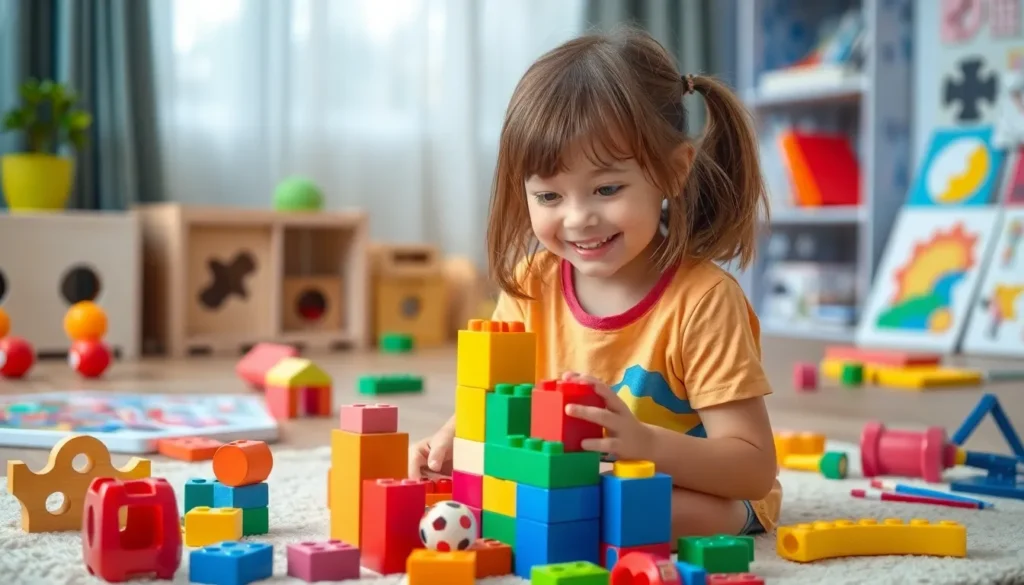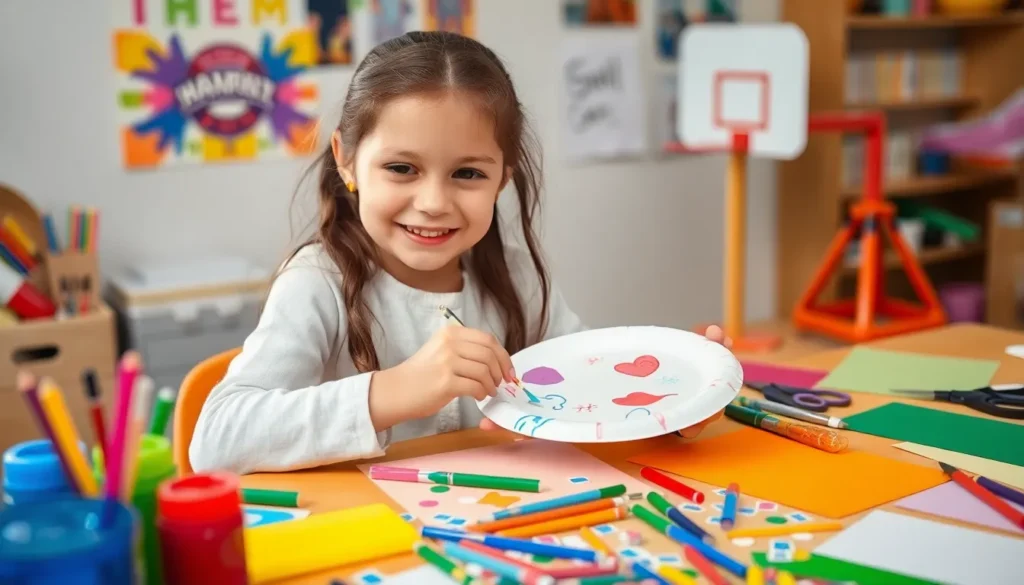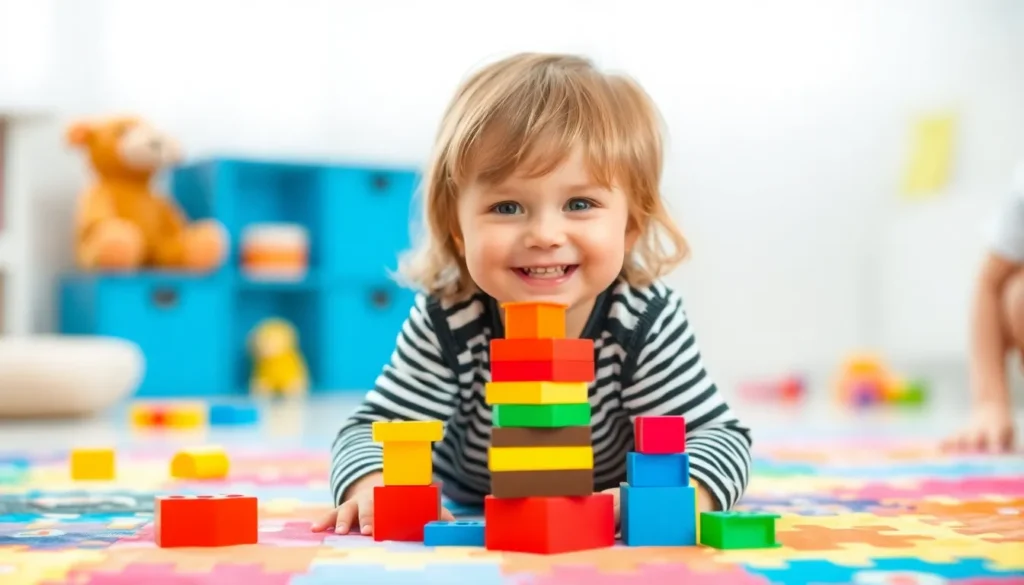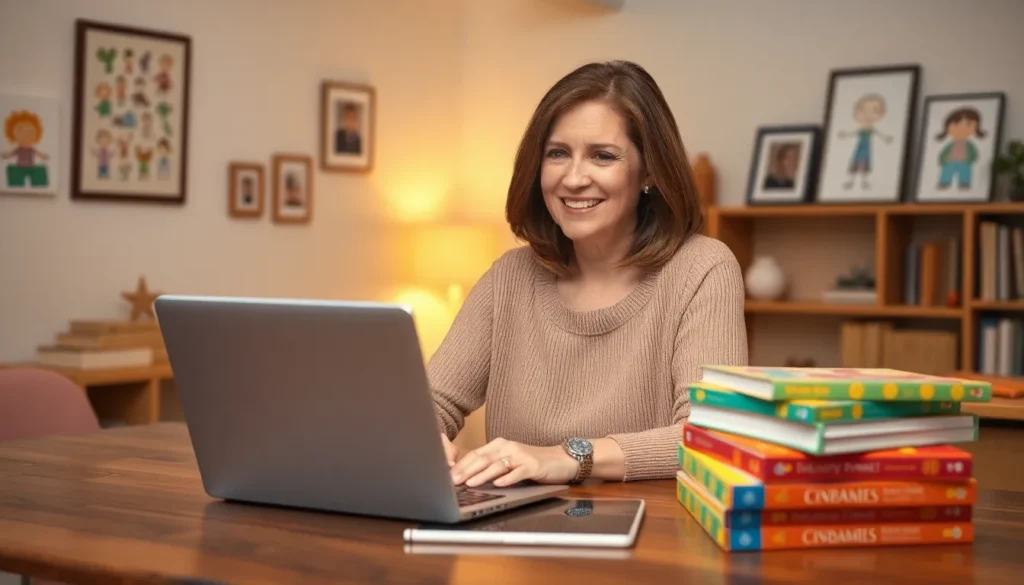Co-parenting can feel like a circus act, especially when you throw a romantic relationship into the mix. Imagine juggling flaming torches while riding a unicycle—sounds thrilling, right? But when boundaries blur and inappropriate behaviors sneak in, the whole show can turn into a chaotic mess.
Table of Contents
ToggleUnderstanding Inappropriate Co Parenting While in a Relationship
Inappropriate co-parenting while in a relationship creates challenges for families. These behaviors can undermine the co-parenting process, leading to confusion and conflict.
Definition of Inappropriate Co Parenting
Inappropriate co-parenting refers to actions and decisions that disrupt harmonious parenting. It occurs when one or both parents prioritize personal needs over the child’s well-being. Manipulating, belittling, or alienating the other parent constitutes inappropriate behavior. When parents fail to communicate openly, they can inadvertently create an unstable environment for their child. Healthy boundaries, clear communication, and mutual respect play critical roles in effective co-parenting. Absent these elements, co-parenting becomes detrimental rather than beneficial.
Signs of Inappropriate Co Parenting
Several signs indicate inappropriate co-parenting is taking place. Frequent arguments about parenting decisions can signify a lack of cooperation. One parent undermining the other’s authority creates confusion for the child. Consistently using the child as a pawn in disputes leads to emotional distress. Disparaging remarks about the other parent, whether in private or public, harm the child’s perception of both parents. Ignoring agreed-upon boundaries or rules can also signal dysfunction in the co-parenting dynamic. Recognizing these signs prompts essential conversations about improving the co-parenting relationship.
Effects on Children
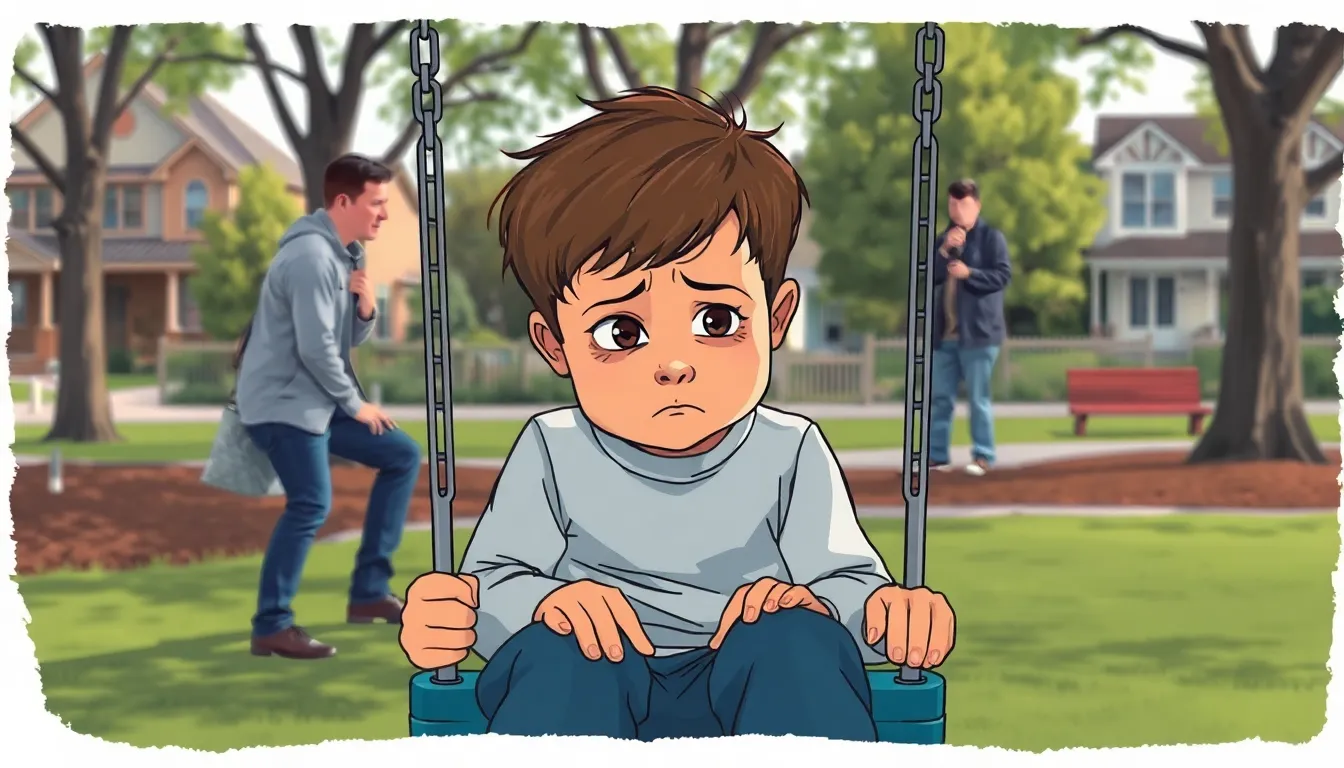
Inappropriate co-parenting can significantly affect children, creating emotional distress and modifying their behavior. These impacts can hinder a child’s development and overall well-being.
Emotional Impact
Children often experience confusion due to conflicting messages from parents. They might feel torn between loyalties, leading to guilt and anxiety. Emotional health suffers when personal issues overshadow the child’s needs. Trust issues arise when one parent undermines the other, causing children to fear abandonment. A negative emotional environment can impact academic performance and social interactions, making relationships challenging.
Behavioral Changes
Behavioral changes frequently manifest as a response to parental conflict. Children may display increased aggression or withdrawal stemming from stress. Some might act out in school, seeking attention or coping with unrest at home. Others could become anxious and shy, struggling to form friendships. Difficulties with authority figures may develop, leading to disregard for rules or boundaries. Changes in behavior often signal deeper emotional turmoil associated with inappropriate co-parenting dynamics.
Communication Breakdown
Communication challenges often arise in co-parenting situations, especially when a romantic relationship complicates the dynamic. Misunderstandings can escalate conflicts, affecting not only the parents but also the children.
Common Misunderstandings
Misinterpretations frequently occur during conversations between co-parents. Assumptions about intentions can lead to emotional responses rather than rational discussions. For example, if one parent comments on a child’s behavior, the other might perceive it as criticism rather than feedback. Additionally, differing communication styles complicate exchanges, making it easy to misconstrue messages. Conflicting priorities can create a perception of lack of support, intensifying frustration. Ultimately, these misunderstandings can disrupt collaborative efforts, emphasizing the need for clarity and patience.
Strategies to Improve Communication
Clarity and transparency foster better communication among co-parents. Establishing regular check-ins offers a dedicated time to discuss concerns and updates about the child. Utilizing clear language reduces ambiguity and enhances understanding. Respectful listening encourages a balanced dialogue where both parents can express their perspectives. Setting boundaries for discussions also helps maintain focus, minimizing emotional escalation. Emphasizing children’s needs during conversations ensures that priorities align, promoting a healthier co-parenting relationship. By implementing these strategies, co-parents can navigate their interactions more effectively, reducing misunderstandings and conflict.
Boundary Setting
Establishing boundaries within co-parenting situations enhances relationships and ensures children’s well-being. Clarity aligns parental actions with kids’ needs, minimizing conflict.
Importance of Healthy Boundaries
Healthy boundaries protect both parents and children from emotional distress. They provide structure within the parenting dynamic. Clear limits prevent inappropriate behaviors, like manipulation and belittling, which lead to confusion for children. Kids thrive in environments where parents respect each other and their roles. Establishing boundaries fosters mutual respect, reducing arguments and misunderstandings. When parents prioritize these boundaries, they support children’s emotional health and development, creating a safe space for them to flourish.
Tips for Establishing Boundaries
Identify specific boundaries that align with parental roles. Discuss these boundaries openly and maintain transparency to prevent confusion. Communicate expectations clearly, ensuring everyone understands their responsibilities. Set consequences for boundary violations to reinforce adherence. Regularly revisit boundaries, adapting as needed to changing circumstances. Stay consistent with enforcing limits, creating predictability for children. Practice active listening to foster understanding and respect between co-parents. These steps create an environment conducive to healthy co-parenting, enhancing collaboration and minimizing conflict.
Seeking Help
Seeking professional help can be a valuable step for parents dealing with co-parenting challenges while in a romantic relationship. Recognizing when to engage a third party can improve the situation for both parents and children.
When to Consider Professional Guidance
Professional guidance becomes necessary when co-parenting conflicts escalate beyond manageable disagreements. Signs indicating the need for help include frequent arguments, a breakdown in communication, or feelings of emotional distress in children. If a parent uses the child as leverage or frequently undermines the other parent, seeking support is essential. Consulting a therapist or a counselor can facilitate healthier interactions and restore balance. These professionals offer strategies tailored to unique family dynamics, fostering a collaborative approach to parenting.
Resources Available
Numerous resources exist for parents seeking assistance with co-parenting issues. Counseling services, parenting workshops, and support groups present opportunities to share experiences and gain insights. Online platforms also provide valuable information, tips, and forums for discussions. Websites, books, and podcasts focus on co-parenting challenges and offer practical advice. Local parenting classes can teach conflict resolution skills and effective communication practices, enhancing the relationship between co-parents. Utilizing these resources can lead to constructive change and support children’s well-being.
Navigating co-parenting while in a romantic relationship can be a delicate balance. When inappropriate behaviors take center stage, the impact on children can be profound and long-lasting. Establishing clear boundaries and maintaining open communication is essential for fostering a positive environment for everyone involved. By prioritizing the child’s well-being over personal grievances, parents can work together to create a supportive atmosphere. Seeking professional help can also provide valuable insights and strategies to improve the co-parenting dynamic. Ultimately, a commitment to respect and collaboration can transform challenges into opportunities for growth, benefiting both parents and children alike.


